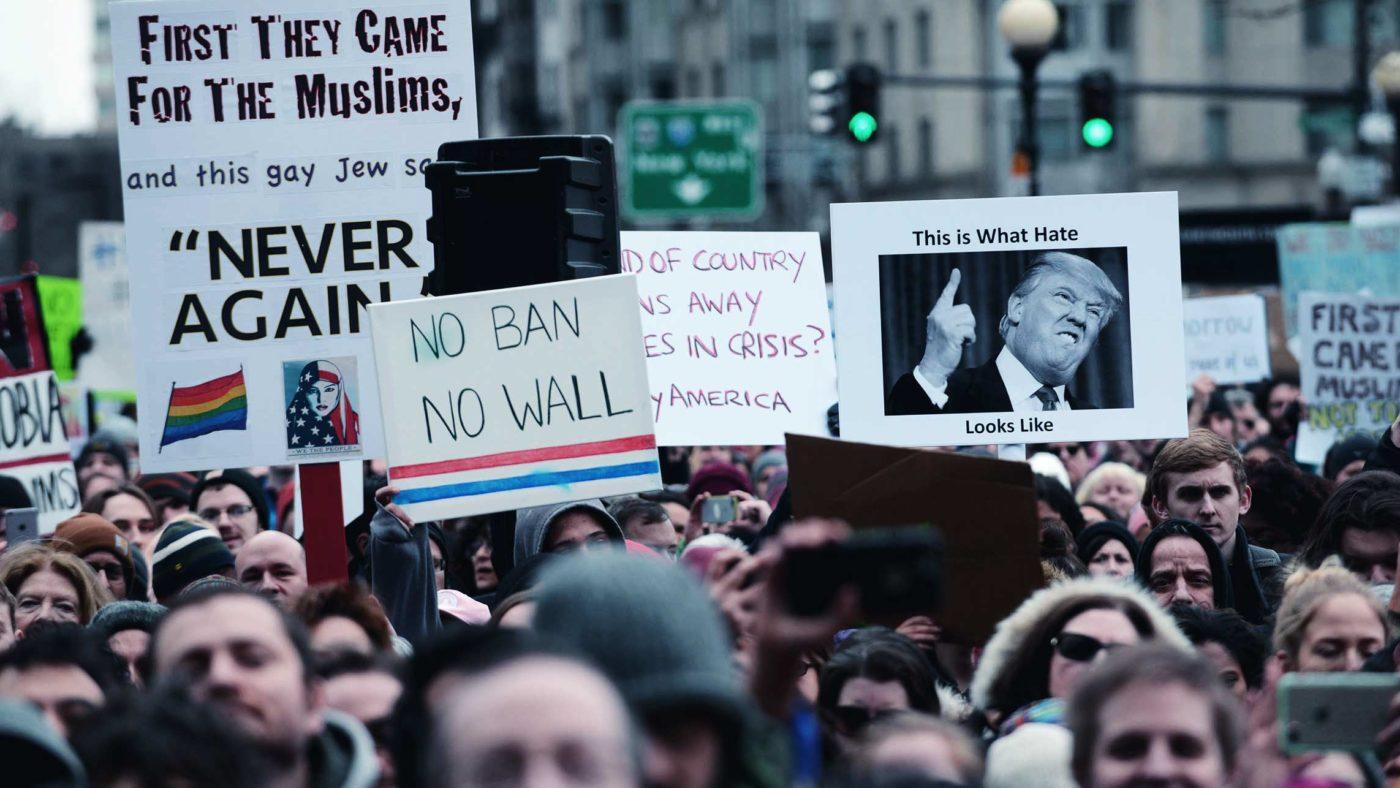President Donald Trump’s partial Muslim ban – directed at Muslim-majority countries, with exemptions for non-Muslims – has become one of the few political issues to unite former Vice President Dick Cheney, the American Civil Liberties Union (ACLU), former CIA director General Michael Hayden, and other senior figures from left to right.
Vice President Mike Pence and Defence Secretary James Mattis both condemned such a ban before they joined the administration, while former members of the Bush administration have queued up to attack the order as “not humane” and “a terrible betrayal of our values”. What is unfolding is a moral, legal, political, and diplomatic calamity: “malevolence tempered by incompetence”, in the words of the otherwise-hawkish national security blog Lawfare. It is also a counter-terrorism own-goal.
This isn't normal. Its not humane, its not thought through, its not necessary, its not wise, its not decent and above all, its not American.
— Eliot A Cohen (@EliotACohen) January 28, 2017
For one thing, the order specifically targets one of the United States’ most important counter-terrorism partners anywhere in the world: the government of Iraq. Almost 500 American troops are currently fighting side-by-side with Iraqis to capture the city of Mosul from Isil. They have struggled, but the eastern half was liberated a week ago, allowing 16,000 children to return to school after two years.There are 5,000 US troops in Iraq overall, working to contain Isil from the east as coalition jets bomb the group’s heartland in Syria to the west.
The two countries have an almost decade-old Strategic Framework Agreement, which specifically promises to strengthen the application process for US visas. Trump had already shown contempt for the relationship by repeating his deranged claim that the US ought to have “kept” Iraq’s oil. This is a further blow. It will increase pressure on the Iraqi government to limit cooperation with Washington, and will create new opportunities for Russia and Iran to deepen their ties with Baghdad. Interpreters and other locals, over 100,000 of whom risked their lives to work with Americans in Iraq alone, may reassess this cooperation upon seeing the treatment of their colleagues in US airports.
The ban also covers Iran, Libya, Somalia, Sudan, Syria and Yemen. The US military is openly active in Syria and Yemen, and covertly operates in the other countries. The Kurds of Iraq and Syria, whose militias have effectively served as the Americans’ ground forces, are also caught up in the ban.
More broadly, Muslim-majority states are among crucial intelligence, military, and diplomatic partners of the United States. Nineteen members of the counter-Isil coalition are Muslim-majority, from Africa to Southeast Asia. The Muslim-majority UAE is the “largest contributor of material and personnel resources to the coalition”, while Saudi and Turkish facilities support airstrikes. Local intelligence agencies are also crucial to penetrating terrorist groups, as we have seen with Al-Qaida in Afghanistan and Yemen in recent years.
But we should not exaggerate the impact of the Executive Order. Cooperation with these countries won’t suddenly come to a halt. Most have, after all, kept silent on the ban, perhaps grateful that it does not yet touch them.
Much of the Persian Gulf is delighted at Trump’s aggressive posture towards Iran, while Egypt is heartened by the administration’s hostility to the Muslim Brotherhood. Indeed on Monday, just days after the ban, Saudi Arabia’s king and the UAE’s Crown Prince both spoke to Trump and agreed to support safe zones in Syria. For these allies, the strategic opportunities of working with Trump against their regional adversaries outweighs any nebulous idea of pan-Islamic solidarity. But if the ban survives the legal challenge, or expands, it may throw up complications.
Domestically, the ban serves no plausible counter-terrorism purpose. Recent jihadist acts on American soil have been carried out largely by citizens of countries not included in the ban, as with the September 11 attacks, or by American citizens and legal permanent residents, such as last summer’s Orlando shooter.
The United States also applies rigorous vetting to prospective refugees that can last up to two years, contrary to Trump’s repeated, false claims to the contrary. Over 3 million refugees have been admitted to the United States between 1975 and 2015. Only three of those committed successful terrorist attacks – all Cubans, in the 1970s, before the introduction of modern screening.
Finally, the ban presents a wider issue over Muslim perceptions of the United States. In June 2009, President Barack Obama delivered a famous speech in Cairo. In it, he warned that September 11 and other terrorist violence “has led some in my country to view Islam as inevitably hostile not only to America and Western countries, but also to human rights. This has bred more fear and mistrust.” Trump embodies this vicious cycle.
Trump’s national security advisor, General Michael Flynn, has written that “fear of Muslims is rational”, and “Islamic ideology is sick”, while his senior advisor, Stephen Bannon has written approvingly of a historic “struggle against Islam”. Hate crimes against Muslims in the United States surged by 67 per cent in 2015, second only to the level after 2001.
The Muslim ban emerges from this deep vein of religious hatred, and in doing so echoes and reinforces jihadist groups’ narrative of a sweeping war on Islam. Trump, having slandered his national security professionals only a week ago, has just made their job immeasurably harder still.


